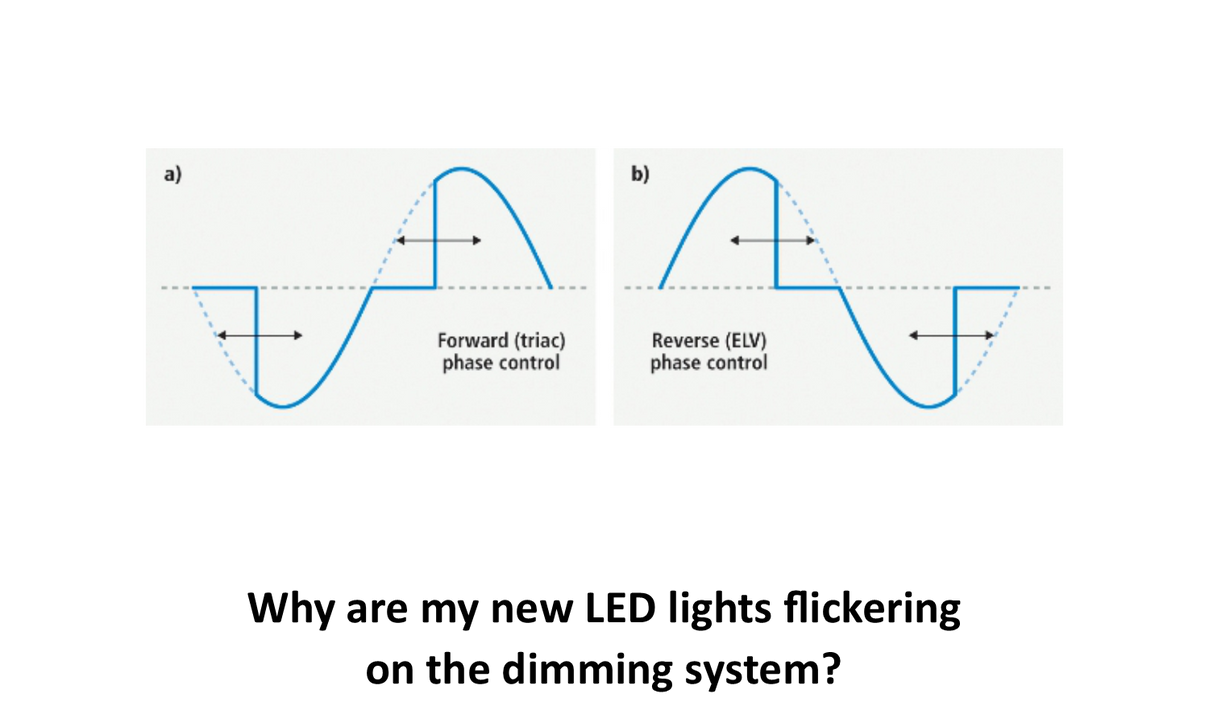(Note:This blog is aimed at theatrical and commercial dimming systems and LEDs. If you are wondering about residential LEDs, the best thing to do is contact the manufacturer of your dimmer to see what LEDs are rated to work with that dimmer. Conversely, you could contact the manufacturer of your LEDs to see what dimmers are recommended. Best of luck!)
As many of you may have found out, not all LED lamps and/or lighting fixtures are created equal.
A common problem that we run into within our industry is when a customer wants to replace their existing incandescent lamps with new highly efficient LED lamps and/or lighting fixtures. When they change out all of their LED Lamps and/or lighting fixtures and then turn them on, they often find them flickering.
Why do they flicker?
There are many reasons why an LED lamp can flicker, but the most common cause is a lack of resistance in the lamp to allow the dimmer curve to work correctly. This is not a new issue; it’s been around for a long time, but is becoming more “noticeable” with the major increase in LED usage.
We first saw this issue when dimmable fluorescent lamps and/or lighting fixtures became popular several years ago. The same issue occurred, because the fluorescent lamp does not have enough resistive load between the load and neutral wires (complete circuit).
Over the years, we have done many things to try to stop that flickering issue with the fluorescent lamps and now with the LED lamps. The biggest key is often to add resistance, but this does not always fix the problem.
Many dimming manufacturers and LED manufacturers are now working together to prevent this issue. However, since there are so many new LED lamp manufacturers, it is hard to achieve much consistency with this endeavor.
The quickest advice I can give you at this time is try out the LED Lamps and/or fixtures on one circuit, before you order a whole lot of LED lamps. I recommend taking a circuit with between 1-5 lamps on it to replace with the LED lamps and/or fixtures. If the LED lamps will work on this type of circuit, then odds are high that it will work on the rest of your circuits.
What are the LED manufacturers doing to correct this issue? As mentioned above, they are getting together with the dimming manufacturers and are working on solutions. A simple solution is for the LED lamp manufacturers to add a resistant circuit to each lamp, which helps with the dimming process.
In addition, the dimming manufacturers are coming out with many new types of dimmers, which help to address the need for very little resistance on the dimmer by either adding resistance to the load or using different types of dimming such as forward phase or amplitude dimming. However, if you already have dimmers, it hardly seems like a fair trade to replace your dimmers to install LED lamps and/or lighting fixtures.
We have successfully replaced many incandescent systems with new LED Lamps and have had tremendous success.
Why switch to LED lamps? The biggest reason is the amount of energy you save by using an LED lamp which can be about a 20 times (or more) savings over an incandescent lamp or 6 times for a fluorescent lamp.
What is the advantage of LED lamps over fluorescent lamps you may ask? LED lamps produce less heat, so that, your HVAC costs are less and the lamps are not considered hazardous materials (mercury in fluorescent lamps) and do not break nearly as easy as a fluorescent tube (go ahead, tell me you like cleaning up a broken fluorescent lamp – HazMat crew anyone?).
I predict that within 5 to 10 years the vast majority of lamps will be LED and not fluorescent. You can either be a leader or a follower. Yes, the prices will continue to come down and the longer you wait, the less you will have to pay for the lamps, but you still have to pay for the extra energy now.
Thanks for listening and I will try to post again in the future. Please let us know if you would like any topics discussed.

